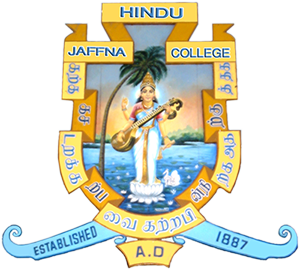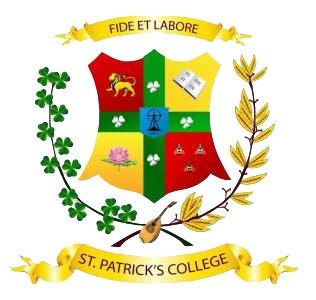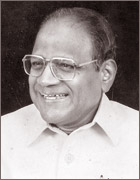
The Colombo Municipal Council is the municipal governing body of Colombo, the largest city and financial centre in Sri Lanka. It consists of a directly elected executive Mayor of Colombo, and elected 119 municipal councilors. The council was formed in 1865, it first met in 1866 and derives most of its powers from Municipal Council Ordinance No. 29 of 1947.

St. John's College is a private school in Jaffna, Sri Lanka. Founded in 1823 by British Anglican missionaries, it is one of Sri Lanka's oldest schools.

Hartley College is a provincial school in Point Pedro, Sri Lanka. Founded in 1838 by British Methodist missionaries, it is one of Sri Lanka's oldest schools. The school is named after Wesleyan priest and missionary Rev. Hartley.

Jaffna Hindu College is a national school in Jaffna, Sri Lanka. It was founded in 1887 by a group of Hindu people who wanted an English language alternative to the Christian missionary schools.

Jaffna Central College is a national school in Jaffna, Sri Lanka. Founded in 1816 by British Methodist missionaries, it is one of Sri Lanka's oldest schools.
A President's Counsel is an eminent lawyer who is appointed by the President of Sri Lanka as an individual "learned in the law". The term is an honorific that replaced the Queen's Counsel (QC), which Sri Lanka ceased appointing when it became a republic in 1972. It is equivalent to the appointment of a King's Counsel in the United Kingdom and other Commonwealth realms, and that of Senior Counsel in Commonwealth republics, bearing the same privileges, such as sitting within the Bar of court.

St Patrick's College (SPC) is a private school in Gurunagar, Jaffna, Sri Lanka. It was founded in 1850 by Roman Catholic missionaries.

Abdul Rauff Hibbathul Hakeem is a Sri Lankan politician and current member of parliament, representing the Kandy electorate since 2010. Hakeem is the leader of the Sri Lanka Muslim Congress (SLMC), and a member of the United National Front for Good Governance.
Kandapper Chinniah Kamalasabayson was a Sri Lankan Tamil lawyer, Solicitor General of Sri Lanka and Attorney General of Sri Lanka.

Kanagasabai Ganeshalingam was a Sri Lankan Tamil politician. He was Mayor of Colombo.

Sir Ratnasothy Saravanamuttu was a Ceylon Tamil physician, politician and the first Mayor of Colombo.
Arumugam Ratnavadivel "A. R." Surendran was a Sri Lankan Tamil lawyer and President's Counsel.
Local elections were held in Sri Lanka on 10 February 2018. 15.7 million Sri Lankans were eligible to elect 8,327 members to 340 local authorities. It was the largest election in Sri Lankan history. This was also the first election under the mixed electoral system where 60% of members were elected using first-past-the-post voting and the remaining 40% through closed list proportional representation.
Thillainathan Rudra, JP, UM (1909–1960) was a Ceylonese politician. He was the mayor of Colombo from 1953 to 1954.
Ratnasiri Rajapakse was a Sri Lanka politician, and the former Mayor of Colombo, between 1991 and 1996.












